Early education & support Division (eesD) resources
Learning Foundations
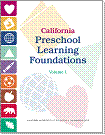
The foundations describe competencies—knowledge and skills—that all young children typically learn with appropriate support. They identify key domains of learning, and the knowledge and skills that teachers seek to help children acquire through intentional teaching.
The chapter on visual and performing arts can be found in Volume 2, pp. 1-36.
Curriculum Framework
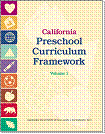
Aligned with the foundations, the curriculum framework provides general guidance on planning learning environments and experiences for young children. The framework presents information about setting up environments, encouraging and building upon children’s self-initiated play, selecting appropriate materials, and planning and implementing teacher-guided learning activities.
The chapter on visual and performing arts can be found in Volume 2, pp. 39-130.
Desired Results Developmental Profile© (DRDP©)
The DRDP is an observation-based assessment instrument used to assess children’s developmental progress.
 The DRDP (2015) was developed for the following three age groups:
The DRDP (2015) was developed for the following three age groups:
- Infant Toddler (I/T) - Birth to 36 months
- Preschool (PS) – Three years to kindergarten entry
- School Age (SA) - Kindergarten through twelve years
In the DRDP, the preschool instrument is aligned with the Preschool Learning Foundations,and the infant/toddler instrument is aligned with the Infant/Toddler Learning and Development Foundations.
There are no measures specific to visual and performing arts in the DRDP.
Preschool English Learners Resource Guide
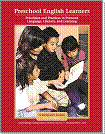 Increasing numbers of children who come from homes in which English is not spoken are entering preschool programs. The Preschool English Learners Principles and Practices to Promote Language, Literacy, and Learning, developed by experts with strong academic and research backgrounds, presents the specific knowledge and tools needed to promote language, literacy, and learning for these young English learners.
Increasing numbers of children who come from homes in which English is not spoken are entering preschool programs. The Preschool English Learners Principles and Practices to Promote Language, Literacy, and Learning, developed by experts with strong academic and research backgrounds, presents the specific knowledge and tools needed to promote language, literacy, and learning for these young English learners.
World Full of Language: Supporting Preschool English Learners DVD
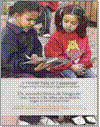 This DVD and accompanying booklet provides information on how young children acquire English as a second language. Research-based strategies are featured for teachers to support English learners. The DVD is closed-captioned and formatted so that viewers can see it in its entirety or in sections. Companion DVD for Preschool English Learners: Principles and Practices to Promote Language, Literacy, and Learning. This DVD is available in both English and Spanish on one disk.
This DVD and accompanying booklet provides information on how young children acquire English as a second language. Research-based strategies are featured for teachers to support English learners. The DVD is closed-captioned and formatted so that viewers can see it in its entirety or in sections. Companion DVD for Preschool English Learners: Principles and Practices to Promote Language, Literacy, and Learning. This DVD is available in both English and Spanish on one disk.
Learning and Development Guidelines
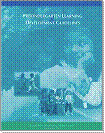 The Prekindergarten Learning and Development Guidelines is a user-friendly resource that can help administrators, teachers, and policy makers identify elements necessary for providing quality programming for children prior to their entry into kindergarten. The guidelines are an essential part of the California Department of Education's (CDE) overall plan to expand and increase access to quality preschool programs for young children.
The Prekindergarten Learning and Development Guidelines is a user-friendly resource that can help administrators, teachers, and policy makers identify elements necessary for providing quality programming for children prior to their entry into kindergarten. The guidelines are an essential part of the California Department of Education's (CDE) overall plan to expand and increase access to quality preschool programs for young children.
-
Pages 127-132 address the creative arts.
Inclusion Works!
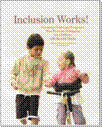 This handbook for providers of child care programs gives guidance and resources on specific ways to include young children who have disabilities or special needs. Suggestions for ways to adapt the environment are provided, along with examples of inclusive strategies. Appendixes and a glossary make this handbook a practical tool for care providers.
This handbook for providers of child care programs gives guidance and resources on specific ways to include young children who have disabilities or special needs. Suggestions for ways to adapt the environment are provided, along with examples of inclusive strategies. Appendixes and a glossary make this handbook a practical tool for care providers.
Early Childhood Educator (ECE) Competencies
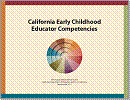 This resource describes the knowledge, skills and dispositions that early childhood educators need in order to provide high quality care and education to young children and their families. The California ECE Competencies are organized into twelve overlapping areas: (1) Child Development and Learning; (2) Culture, Diversity and Equity; (3) Relationships, Interactions, and Guidance; (4) Family and Community Engagement; (5) Dual-Language Development; (6) Observation, Screening, Assessment, and Documentation; (7) Special Needs and Inclusion; (8) Learning Environments and Curriculum; (9) Health, Safety, and Nutrition; (10) Leadership in Early Childhood Education; (11) Professionalism; and (12) Administration and Supervision. The California ECE Competencies are research-based, and aligned with the California Preschool Learning Foundations and the California Infant/Toddler Learning & Development Foundations to guide professional development and related quality improvement activities.
This resource describes the knowledge, skills and dispositions that early childhood educators need in order to provide high quality care and education to young children and their families. The California ECE Competencies are organized into twelve overlapping areas: (1) Child Development and Learning; (2) Culture, Diversity and Equity; (3) Relationships, Interactions, and Guidance; (4) Family and Community Engagement; (5) Dual-Language Development; (6) Observation, Screening, Assessment, and Documentation; (7) Special Needs and Inclusion; (8) Learning Environments and Curriculum; (9) Health, Safety, and Nutrition; (10) Leadership in Early Childhood Education; (11) Professionalism; and (12) Administration and Supervision. The California ECE Competencies are research-based, and aligned with the California Preschool Learning Foundations and the California Infant/Toddler Learning & Development Foundations to guide professional development and related quality improvement activities.